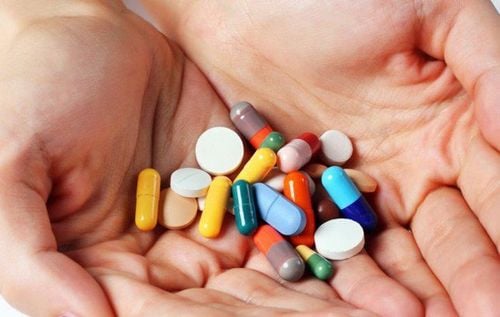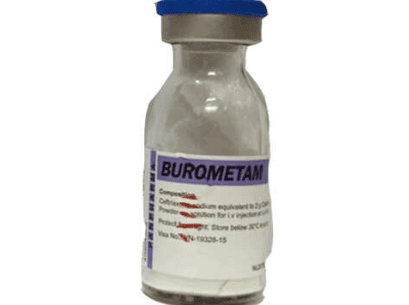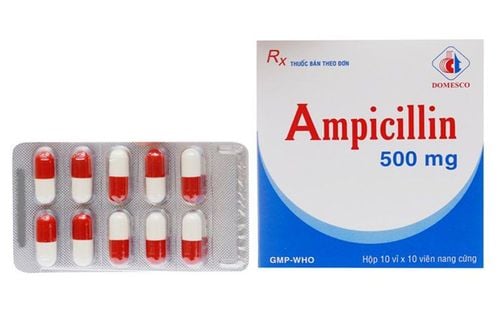This is an automatically translated article.
The article was professionally consulted by Pharmacist, Master Nguyen Hoang Phuong Khanh - Faculty of Pharmacy - Vinmec Central Park International General HospitalAntibiotics are not drugs that can be used arbitrarily, need to be used for the right disease, at the right dose, at the right time and under the guidance of a doctor/pharmacist. Antibiotics only treat infections caused by bacteria, not viruses.
1. So what are antibiotics?
Antibiotics are drugs that kill or inhibit the growth of bacteria, thereby reducing the inflammatory response caused by bacteria. Antibiotics have different effects on different types of bacteria, some antibiotics that work on many strains of bacteria are called broad-spectrum antibiotics, others that work on certain strains of bacteria are called antibiotics. narrow spectrum.
2. What do antibiotics do and what don't they do?
Most of the bacteria that live naturally in the human body are not harmful, Some can be beneficial because they participate in metabolic processes and protect the body from pathogenic bacteria.
Antibiotics are used to treat diseases caused by bacteria, for example: sinusitis, tooth infection, soft tissue skin infection, meningitis, urinary tract infection, upper respiratory infection, bacterial infection Lower respiratory tract etc
Colds, flu, cough, sore throat, bronchitis are usually caused by viruses, and in this case antibiotics will not be effective. Your doctor will evaluate and prescribe you anti-inflammatory or antiviral medication if needed.
In some cases where the cause of the infection has not been determined is bacterial or viral, the doctor will give more microbiological tests before prescribing treatment.
Side effects of antibiotics: Antibiotics often have side effects on the digestive system because they kill beneficial bacteria in the intestinal tract. Common side effects are vomiting, diarrhea, indigestion, abdominal pain, etc. In addition, some antibiotics have side effects on other organ systems such as nervous, cardiovascular, hematopoietic, and urinary systems, especially in case of drug overdose.
Antibiotic resistance: Antibiotics are an effective bacterial treatment when used cautiously and safely. However, many studies show that 50% of antibiotic use is unnecessary. Inappropriate use leads to antibiotic resistance, as bacteria are "trained" and develop resistance to the drug on their own. At that time, antibiotics will no longer be effective in killing bacteria, the patient needs to be treated with a stronger, broader spectrum antibiotic. In addition, when bacteria become "multi-resistant" or "super-resistant", no antibiotics will work and the patient is at risk of death because there is no longer a suitable treatment.
3. How to treat antibiotics most effectively?
2.1 Make sure the antibiotic is effective when you really need it:Always ask your doctor if the antibiotic choice is optimal in this case? Not all antibiotics have the same effect, so don't use antibiotics prescribed for someone else with a different indication. Protect yourself from harmful microorganisms by washing your hands often with soap and clean water. It is necessary to vaccinate against influenza and other vaccines according to the doctor's instructions for each age and comorbidities. 2.2 Questions you can ask your doctor/pharmacist for more information:
Why do I need this antibiotic? What are the common side effects of this antibiotic? How can I avoid these side effects? How to use antibiotics? How many times a day can I use it? How long is the total duration of antibiotics? What should I do in case I forget to take my medicine? Can I take antibiotics with food, other medicines or alcohol? Under what conditions should this antibiotic be stored?

Sử dụng kháng sinh an toàn
2.3 When you are prescribed antibiotics:
Always talk to your doctor, pharmacist about the medicines you are taking, your history of drug allergies, food allergies. Provide complete information related to comorbidities, pregnancy status or are in need of pregnancy to be prescribed the appropriate antibiotic. Need to take the exact dose and frequency of medication prescribed by your doctor Need to take the full time of the antibiotic you were prescribed, even if you feel better after a few days of treatment Never take the prescribed antibiotic application for others. Do not re-use the antibiotic you used to treat a previous infection.
Please dial HOTLINE for more information or register for an appointment HERE. Download MyVinmec app to make appointments faster and to manage your bookings easily.
Reference article source:
www.FDA.gov
www.Web MD.com
www.sfhp.org













